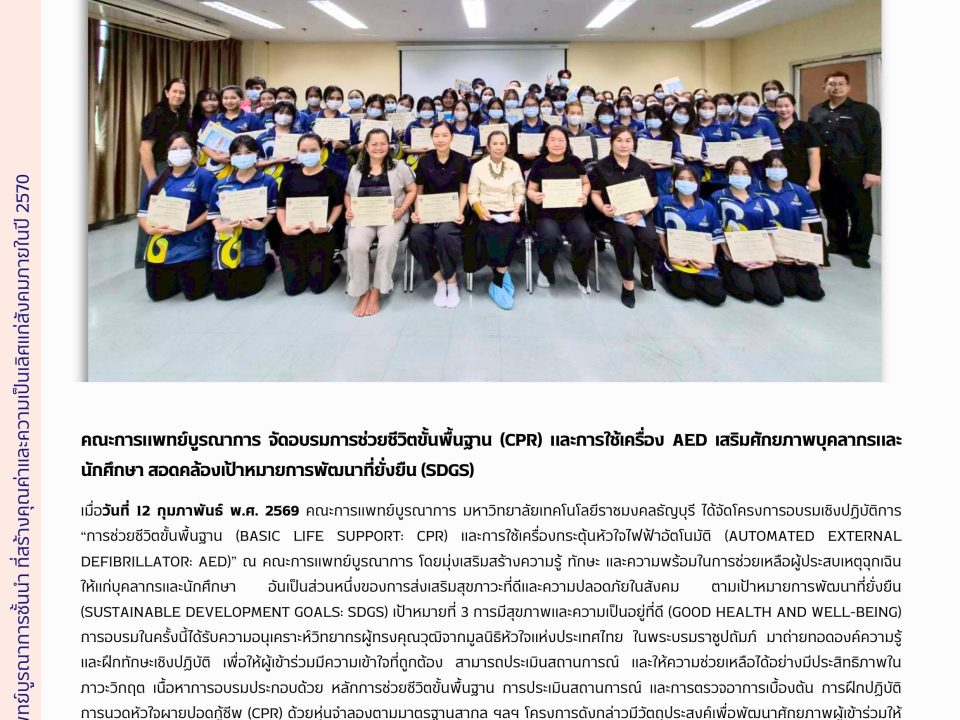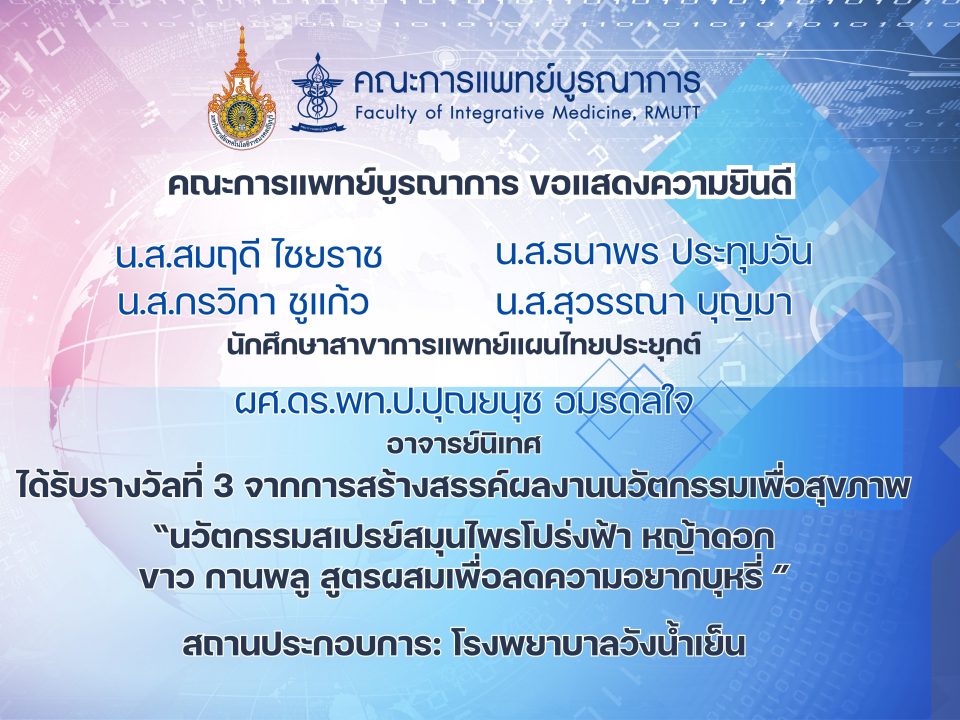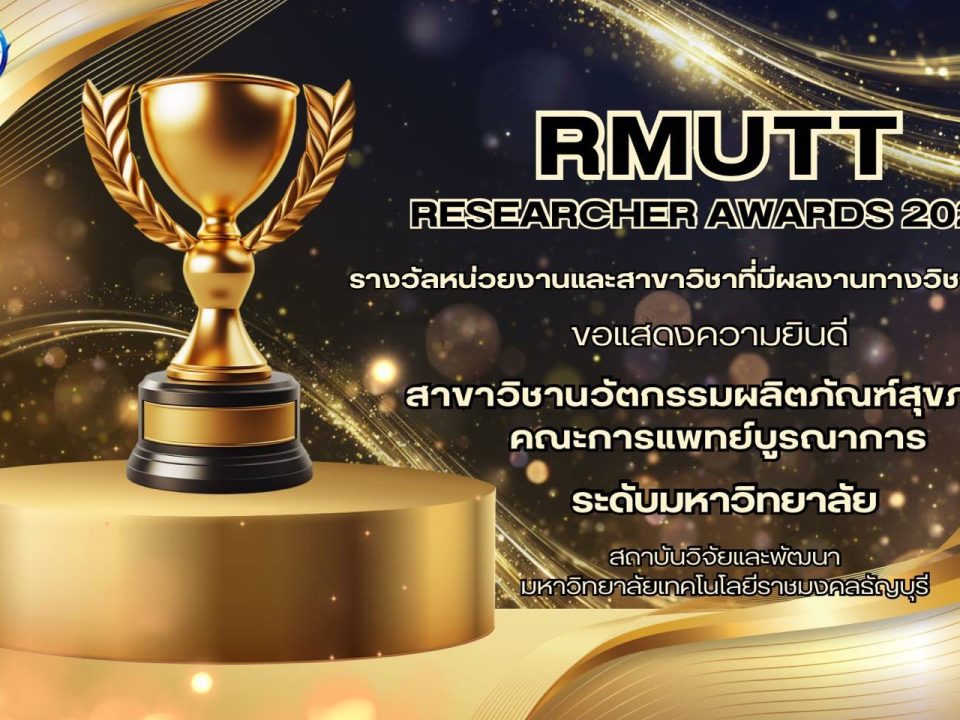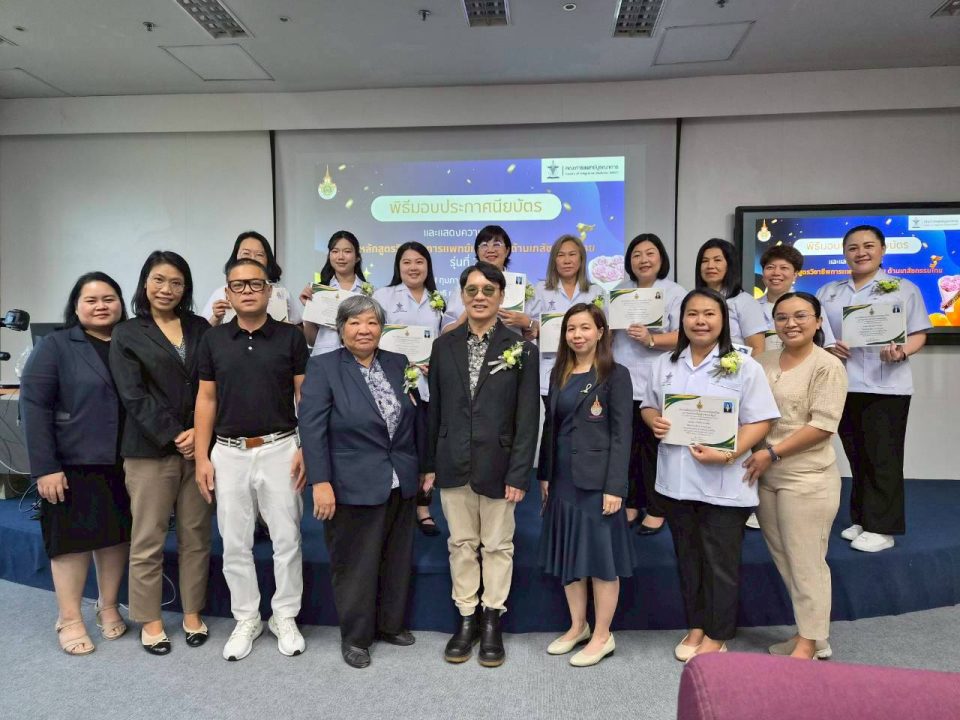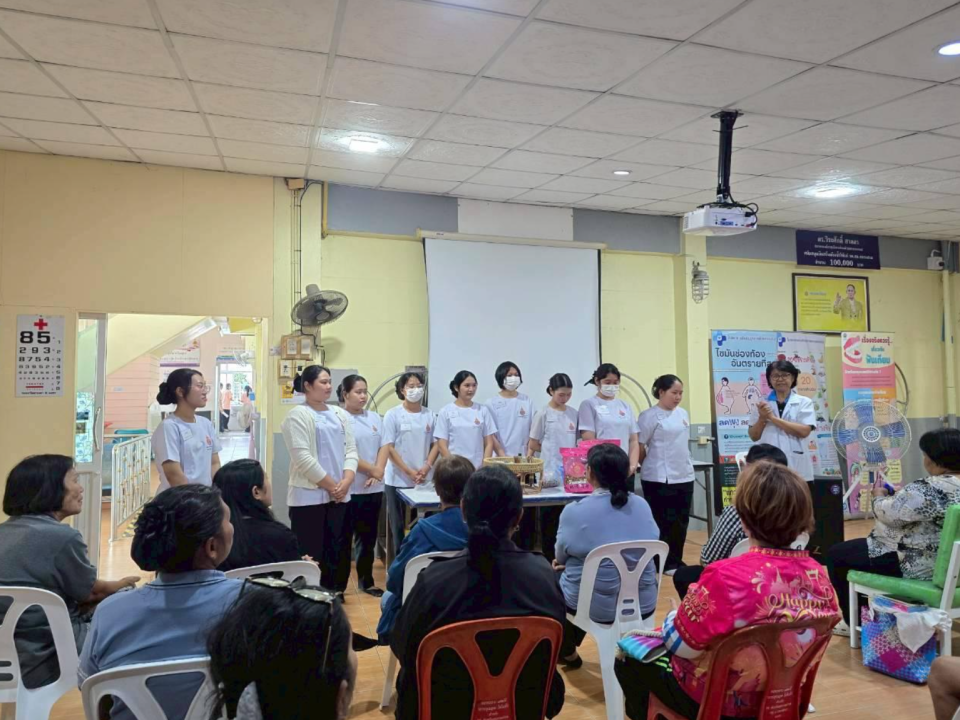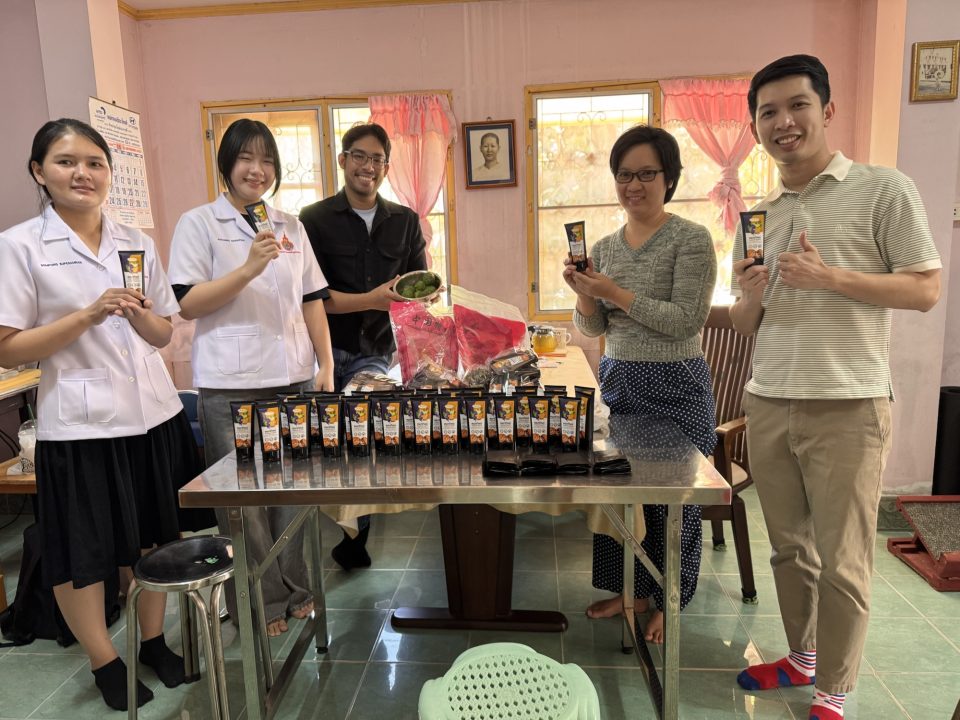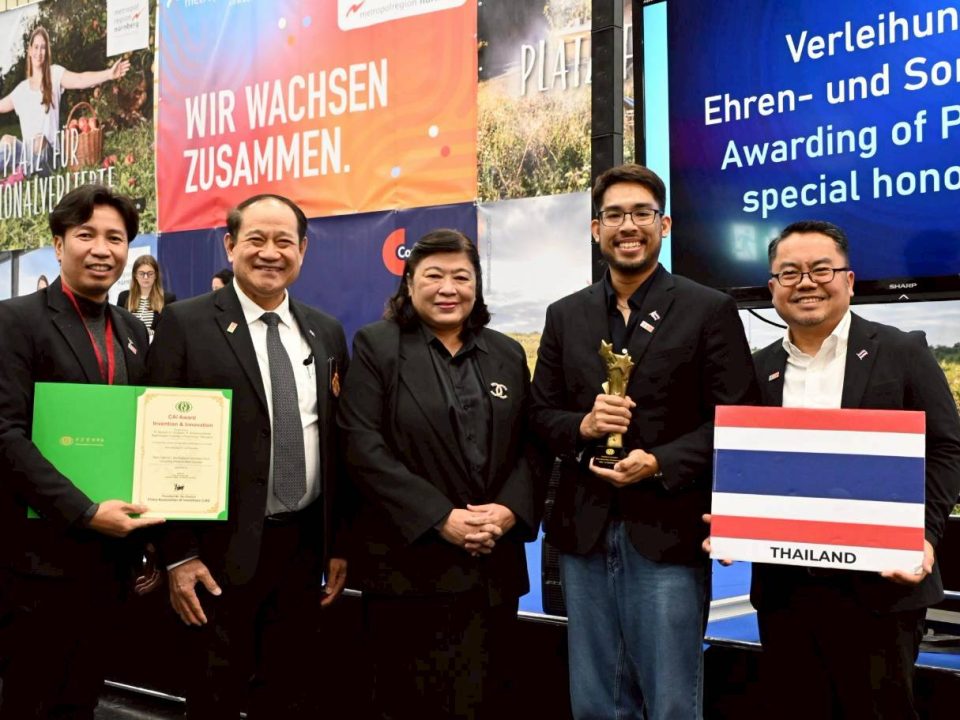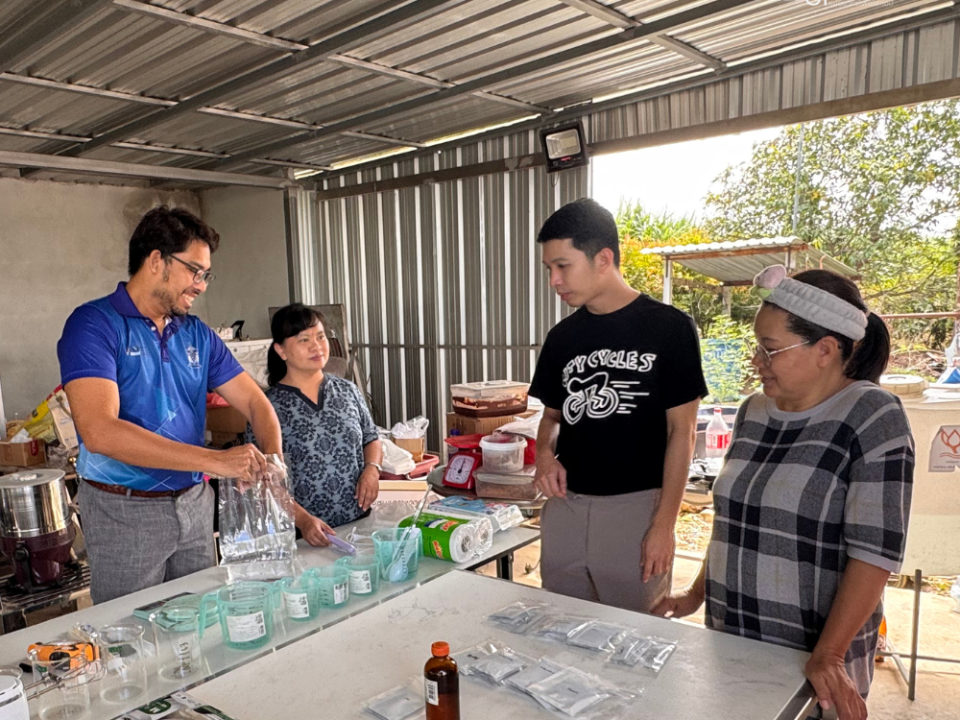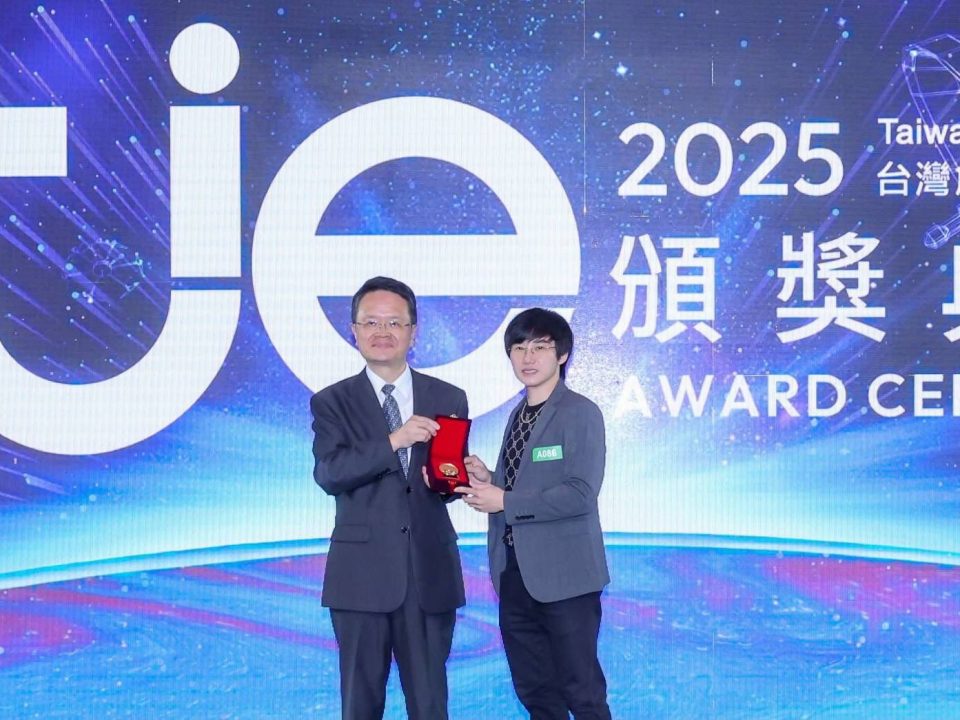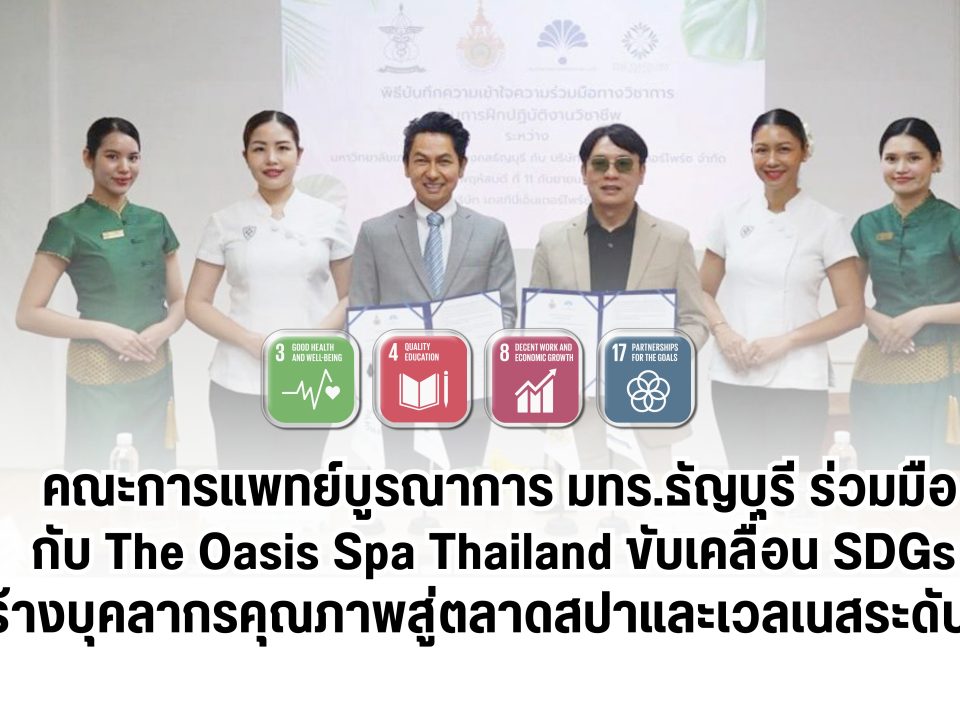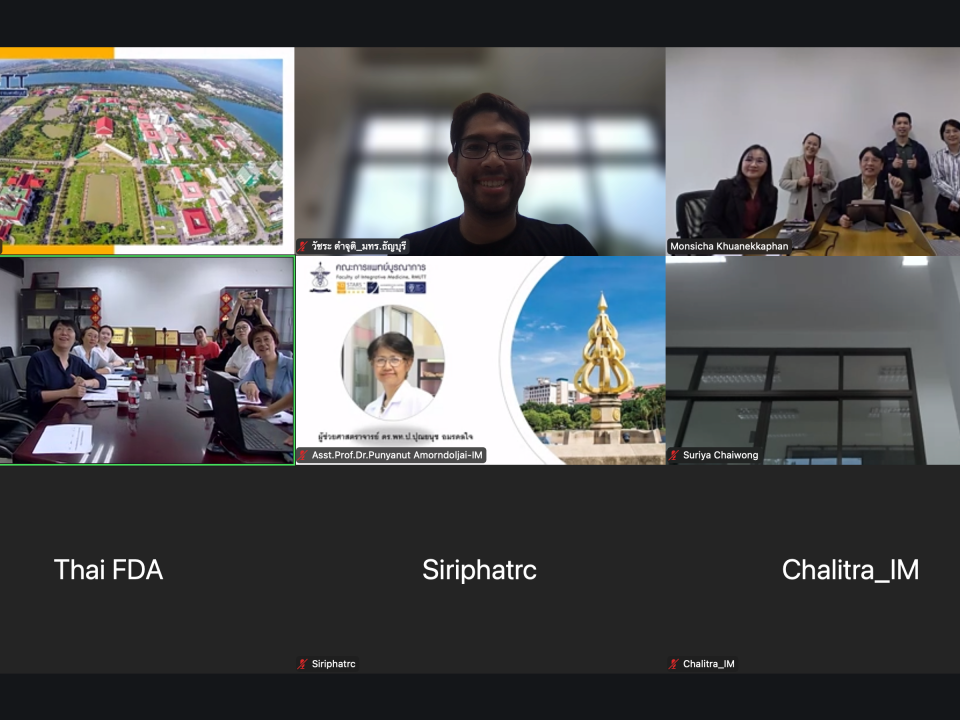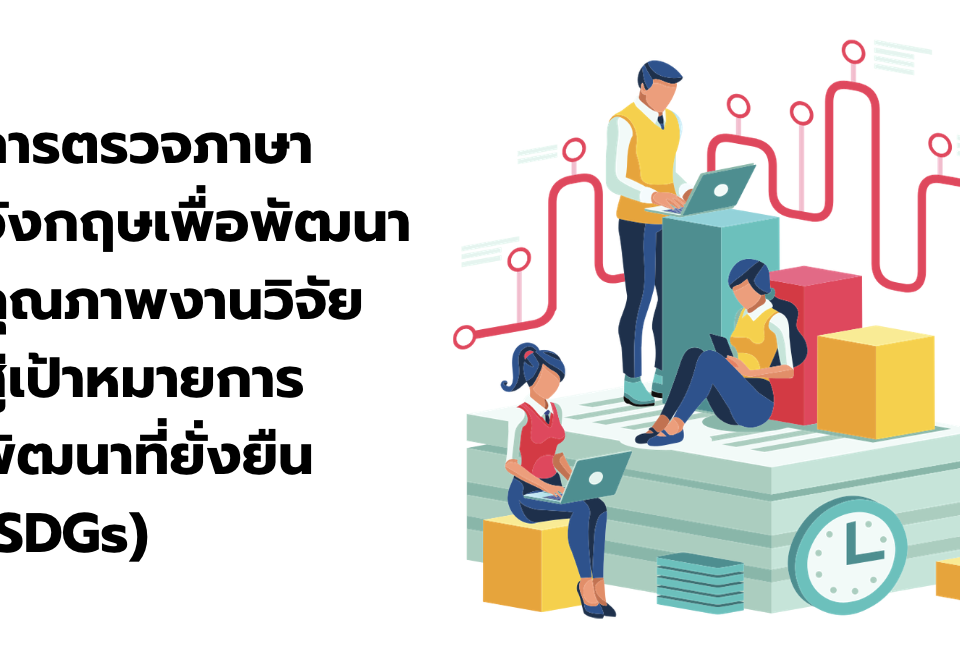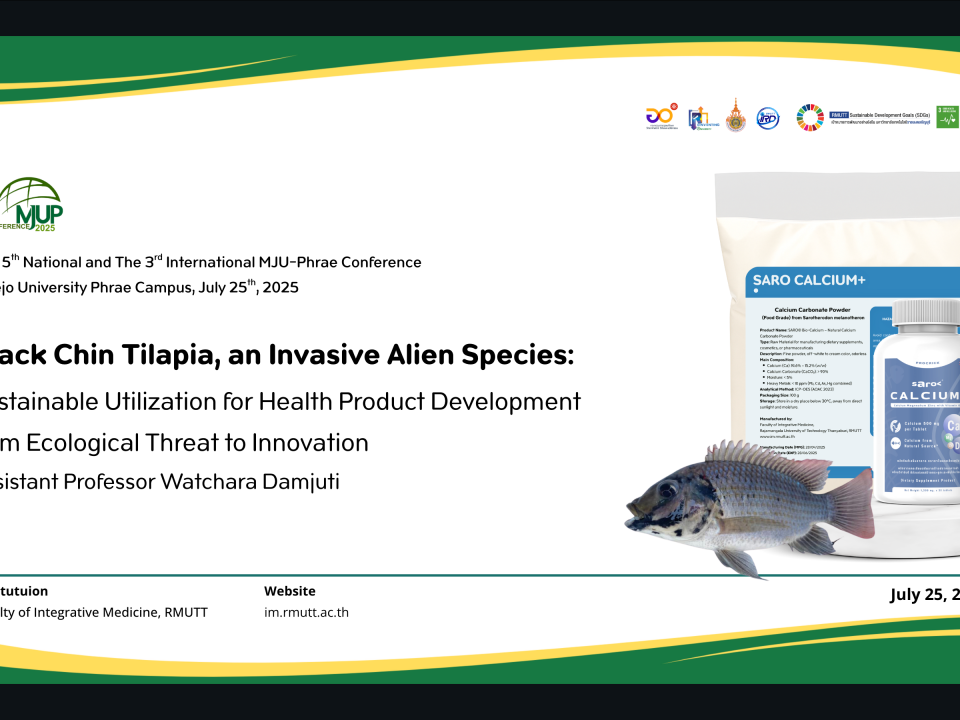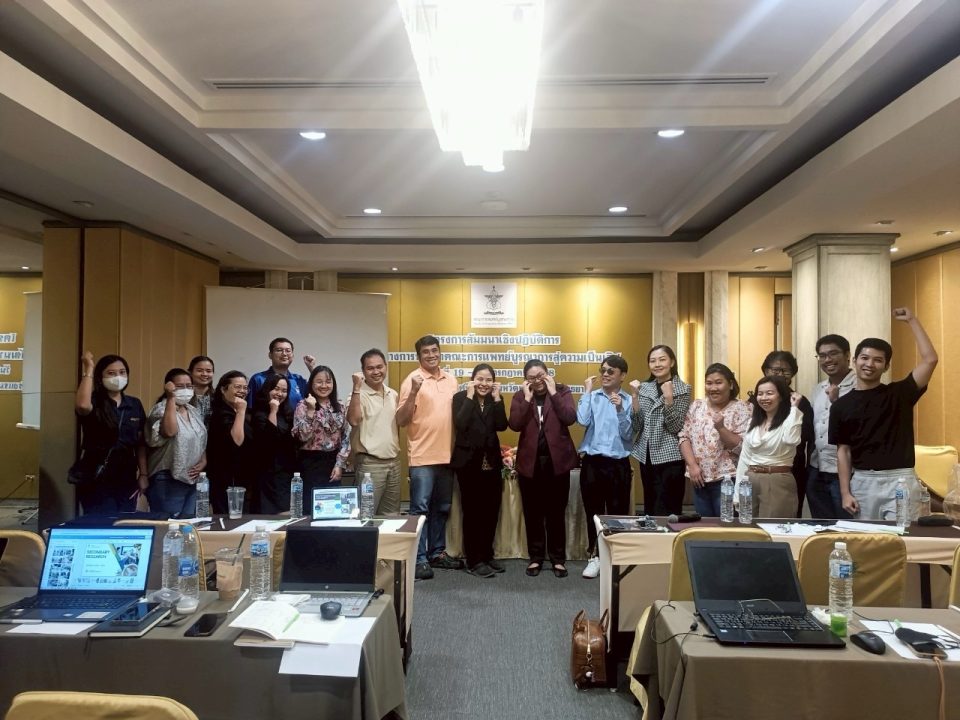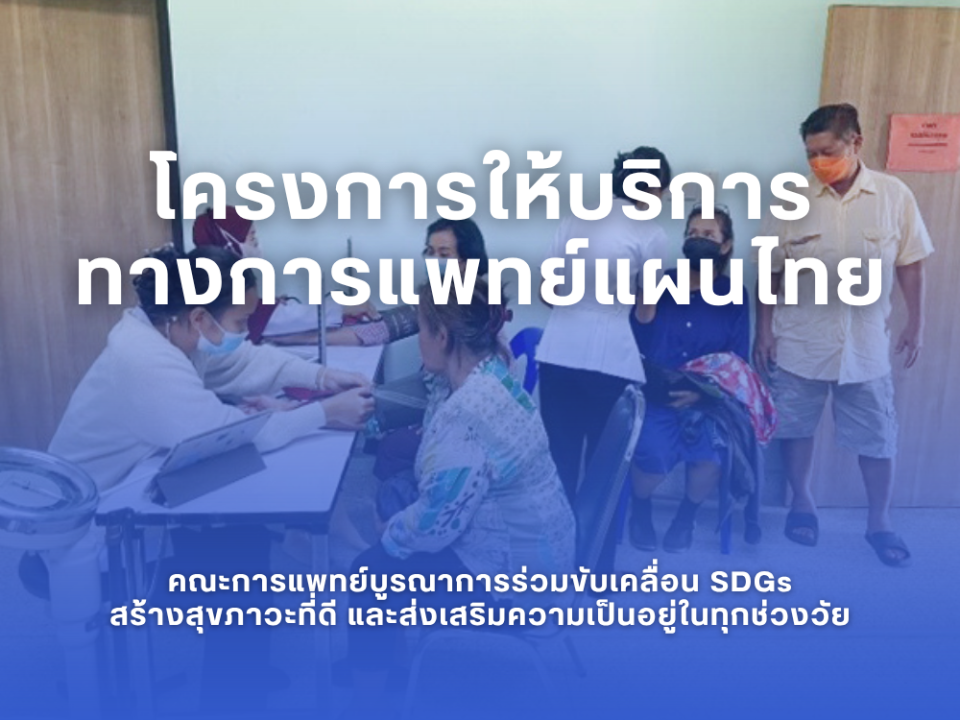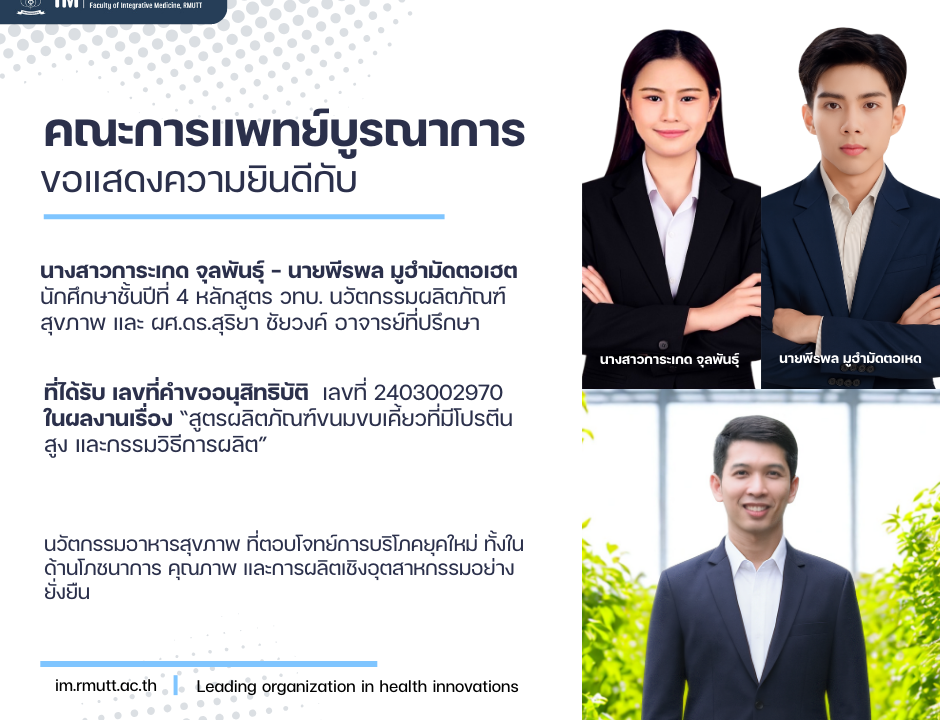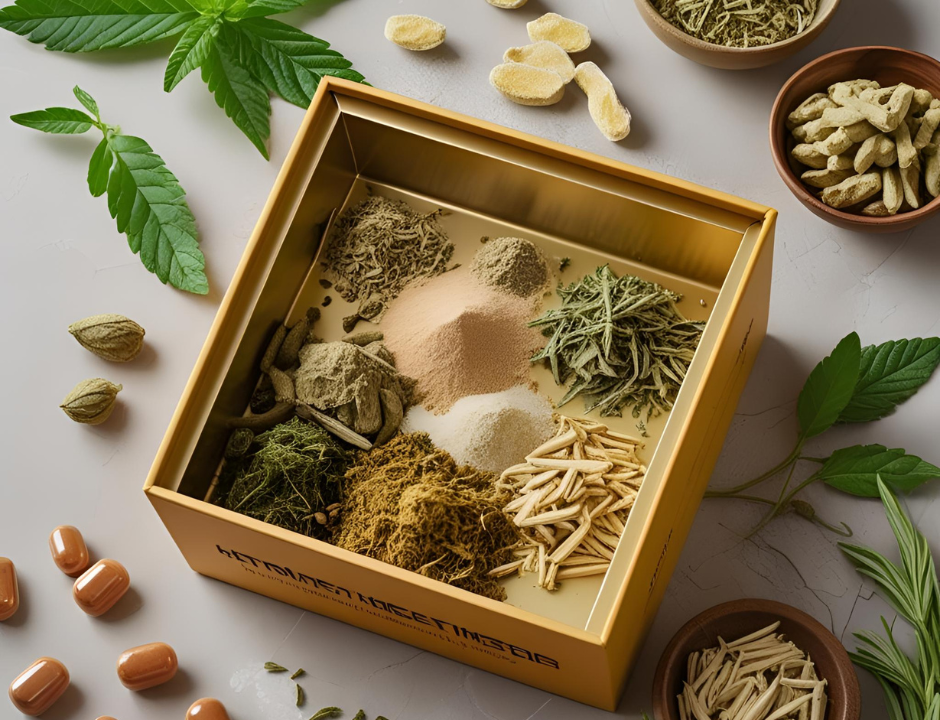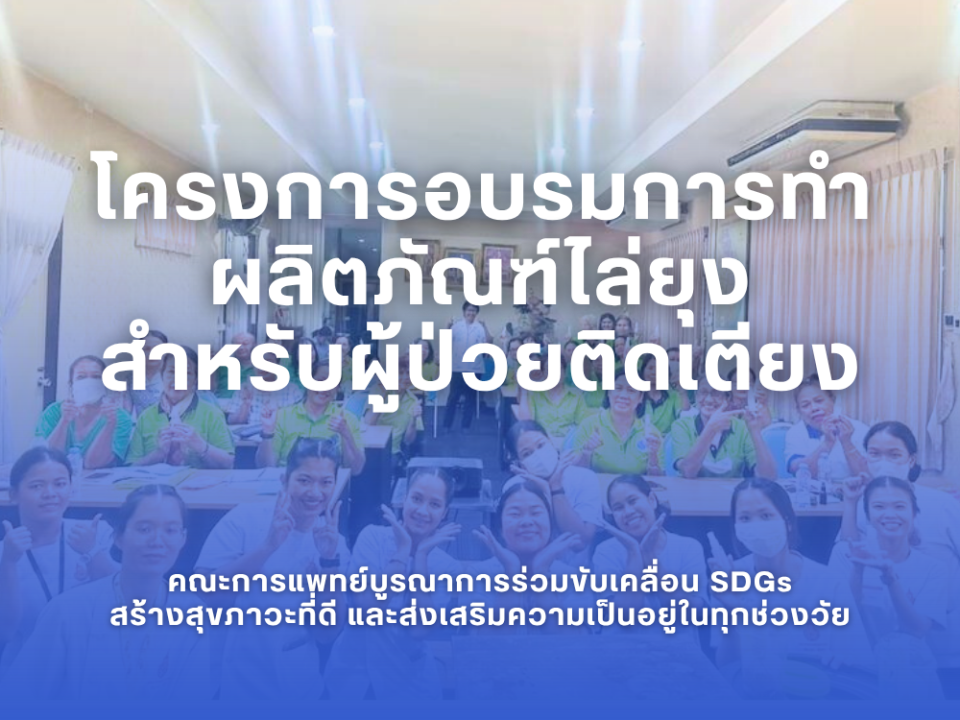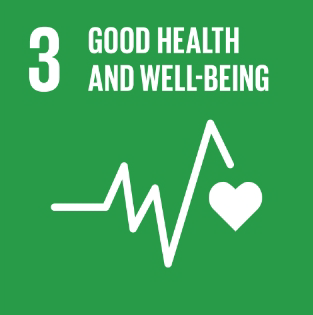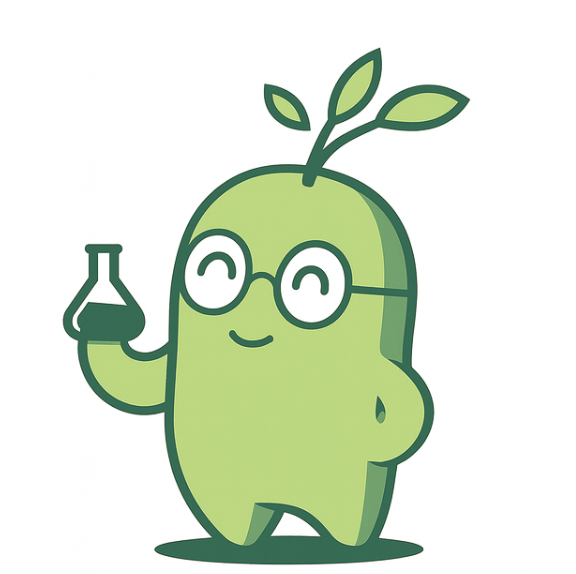Highlights
SDGs News Release
Introduction to SDGs
The Sustainable Development Goals (SDGs) are 17 global goals established by the United Nations to address key social, economic, and environmental challenges with the aim of creating a better and more sustainable world by 2030. These goals include ending poverty and hunger, ensuring good health and quality education, promoting gender equality, providing clean water and energy, supporting decent work and economic growth, fostering innovation and sustainable infrastructure, reducing inequalities, making cities sustainable, encouraging responsible consumption and production, taking action on climate change, protecting marine and terrestrial ecosystems, promoting peace and justice, and strengthening global partnerships for sustainable development.
"We Empowered Sustainable Development"
is committed to contributing to the Sustainable Development Goals (SDGs)
The Faculty of Integrative Medicine, Rajamangala University of Technology Thanyaburi (RMUTT) has embraced all 17 United Nations Sustainable Development Goals (SDGs) and integrated them into its operational strategies, teaching, research, and academic-service activities—placing special emphasis on SDG 3: Good Health and Well-being, the faculty’s primary objective.
Adopting the SDGs not only creates positive health impacts at local, national, and global levels, but also ensures that the faculty’s initiatives align with the university’s mission and advance sustainable development in concrete ways.
To determine priorities, the faculty applied the principles of the SDG Compass and the SDG Guide for Thai Higher-Education Institutions, linking each goal to its specific context by considering:
-
The core mission and strategies of the Faculty of Integrative Medicine
-
Teaching, research, and academic-service activities across the entire value chain
-
The faculty’s sustainability targets for 2030 (B.E. 2573)
In 2024 (B.E. 2567) the faculty identified one strategic goal—SDG 3—as its principal focus, together with five directly supportive goals:
-
SDG 4 – Quality Education
-
SDG 9 – Industry, Innovation and Infrastructure
-
SDG 12 – Responsible Consumption and Production
-
SDG 13 – Climate Action
-
SDG 17 – Partnerships for the Goals
The faculty further ranks these SDGs by both the degree of organisational involvement and their social-environmental impact, providing clear guidance for future projects, activities, and policies that genuinely advance sustainable development.
Knowledge about the Sustainable Development Goals (SDGs)
ติดต่อสอบถาม
- ที่อยู่ : เลขที่ 8 ถนนพหลโยธิน 87 ซอย 2 ต.ประชาธิปัตย์ อ.ธัญบุรี จ.ปทุมธานี 12130
This page has been visited times.




